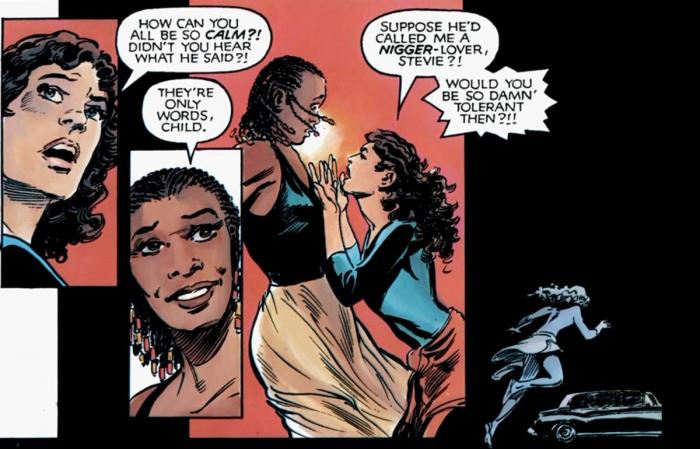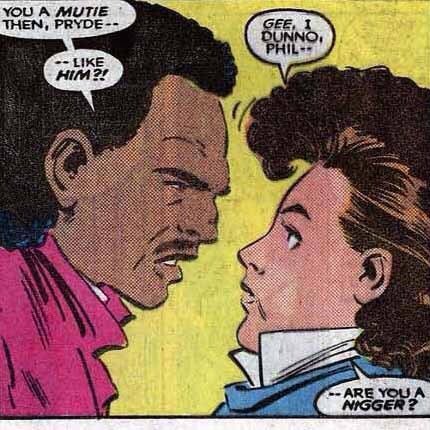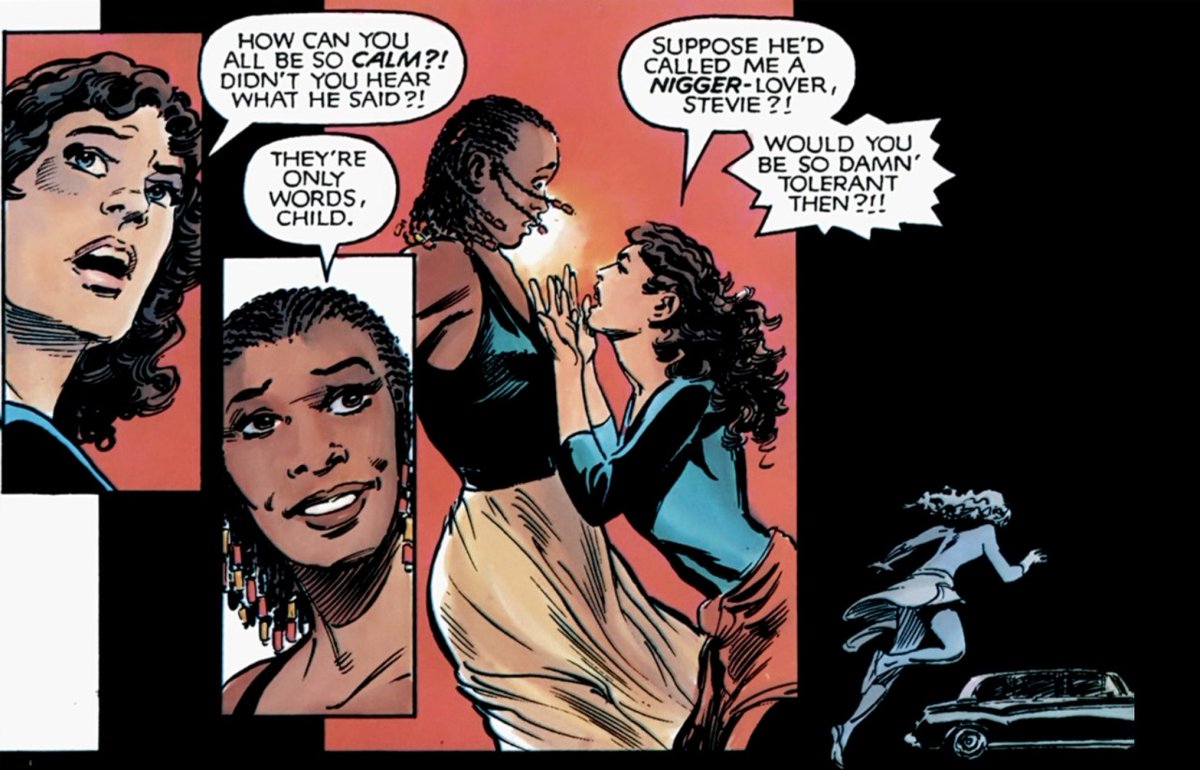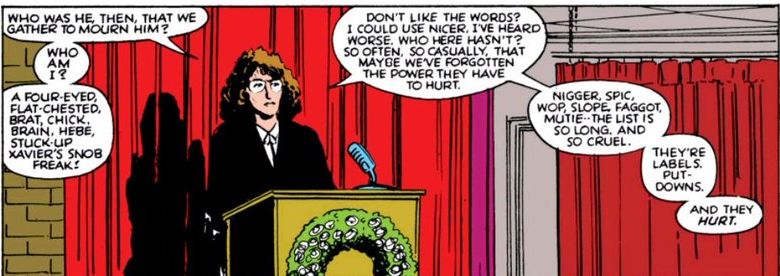You are here
Home › Comics › A Generation Ago, Kitty Pryde Spoke Truth to Power; Year's Later, Twitter Loses Its Mind ›A Generation Ago, Kitty Pryde Spoke Truth to Power; Year's Later, Twitter Loses Its Mind
FTC Statement: Reviewers are frequently provided by the publisher/production company with a copy of the material being reviewed.The opinions published are solely those of the respective reviewers and may not reflect the opinions of CriticalBlast.com or its management.
As an Amazon Associate, we earn from qualifying purchases. (This is a legal requirement, as apparently some sites advertise for Amazon for free. Yes, that's sarcasm.)

“But if thought corrupts language, language can also corrupt thought.”
― George Orwell, 1984
We communicate with words. We may communicate crudely or eloquently, but nevertheless we do it with words. And as we mature, we learn there are words that are better than others, and there are words that are not spoken in polite society.
And then there are words that are not only looked down upon, but they are controlled. They can be said, but only by certain people. This act of protectionism embues a word with power, ideally to remove the power of hate from it when used by those who would use it thusly.
We know the most prominent of these words by their first letters. The F-word. The N-word. Say them in the wrong place, or be the wrong person, and your environment can quickly change.
Which is why it was such a shocking moment when X-Man Kitty Pryde dropped one of these bombs in the classic X-Men graphic novel, GOD LOVES, MAN KILLS.
This was the first instance that gave Twitter uses pause, if not cringe, today when Marvel comics writer Leah Williams (@mymonsterischic) broached the topic, initiating a conversation ostensibly to reconcile where Kitty Pryde was then with where she is today, with the obvious implication being that Kitty is a better person today who regrets her language.
Let's hope not, because that Kitty Pryde was, perhaps, the bravest and boldest of the era of the Uncanny X-Men. She knew instinctively the power of the language she used. It may seem more egregious in the world of the readers, but Chris Claremont's point, as the writer, was to show that in the Marvel Universe, the word "mutie" -- henceforth known as the M-word? -- was just as hurtful, and just as incendiary. What's more, the African-American woman Kitty spoke it to, Stevie Hunter, validates Kitty's feelings after Colossus tries to apologize for Kitty in her absence (a panel conveniently absent from the Twitter thread).
Later, in NEW MUTANTS #45, Claremont deals with another sensitive topic: bullying and teen suicide. In this case, a young man kills himself after he is outed as a mutant and fears he will be taken away by authorities. And Kitty Pryde was once again on hand to address the power of words to hurt.
Again, the point was to create linkage for the M-word to have as equally a vile connotation as any of those other words used to denigrate minorities. And while Kitty's speech may have been passionate, it wasn't the impassioned kind where something comes out in a rage. These words were practiced and measured; a eulogy. Kitty was acutely aware of the words she planned to use and used them anyway. Because she recognizes the power of them, and took that power for herself.
Not that Kitty is above using those words for confrontation. Consider this scene from UNCANNY X-MEN 196, once again by Chris Claremont:

UNCANNY X-MEN #196
Phil responds predictably telling her to watch her mouth, the irony being that he didn't have a problem not watching his when tossing about the M-word in the Marvel Universe. And while Kitty is in a confrontation this time, she uses the word with thought--and, I will say, appropriateness. It's intended to shock, to make a point, and it does so, if only to the reader.
There have been arguments made that these comics were products of there times, as if the comics are great grandparents from Jim Crow era Alabama, and that they should be thusly excused from any harsh criticism as might befall any comic that dared use such language today. And to be sure, if any comic were to use the words today in the context of insult and racial mockery, then yes, the comic would deserve criticism.
But these issues, featuring this character, don't deserve our criticism. If anything, they deserve our admiration. They show that words have power, and that Kitty Pryde, a Jewish girl who was no stranger to prejudice, knew how to take that power, and invoke that power, to speak truth to power.
Back when Kitty Pryde had chutzpah, Marvel writers had guts, and Marvel had balls.




